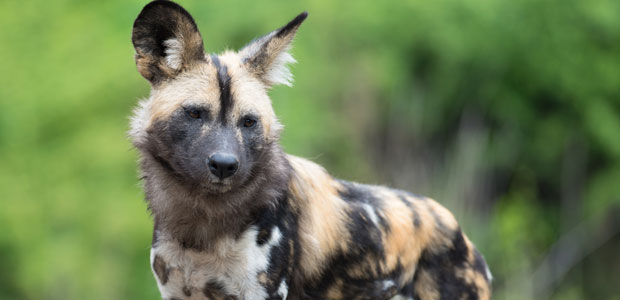Advertisement
Wildlife Wednesday: African Wild Dog
The African wild dog may be a highly efficient hunter, but it’s also caring and cooperative within its pack. Learn about why it’s threatened by humans. Habitat: the plains, mountains, and wooded areas of sub-Saharan Africa African wild dog trivia This dog has many names! Along with African wild dog, it goes by Cape hunting … Continued

The African wild dog may be a highly efficient hunter, but it’s also caring and cooperative within its pack. Learn about why it’s threatened by humans.
Habitat: the plains, mountains, and wooded areas of sub-Saharan Africa
African wild dog trivia
- This dog has many names! Along with African wild dog, it goes by Cape hunting dog and the painted dog (because of its unique coloured coat). Each dog has subtle variations in its brown, black, and white coat.
- Like other dogs, they live and hunt in packs (of six to 20 individuals) and help each other out when taking down large prey such as wildebeests.
- Unlike other dogs, they only have four toes on each paw.
- In the African wild dogs’ pack, one pair rules, and they are the only ones who breed. When the pups are born, they are cared for by the entire pack. The pack also cares for the ill and weak and is known to share food.
- Pack animals are known to be very intelligent and communicative, and African wild dogs are no exception. They communicate in many ways with each other, such as through various sounds, touching, and they even have elaborate rituals for greetings and for initiating hunts.
- African hunting dogs are referred to as the most efficient hunter out of all large predators, as their prey rarely escapes.
Why they’re threatened
African hunting dogs are endangered, and face several threats. They’re often killed by farmers who fear that they will go after livestock. Unfortunately, the encroachment of humans into the wild dogs’ territory means that the dogs will occasionally go after livestock.
Along with human interaction and disappearance of habitat, they are threatened by infectious diseases after contact with domesticated animals. They are being monitored and studied by researchers hoping to learn more about how to protect them by filling gaps in knowledge about these amazing animals.





